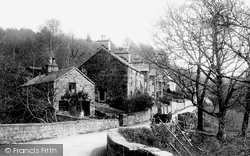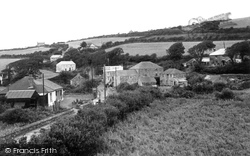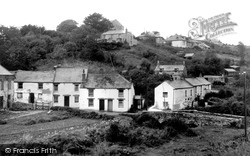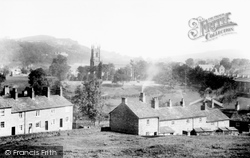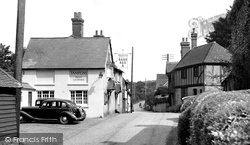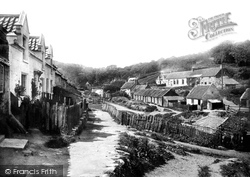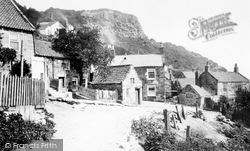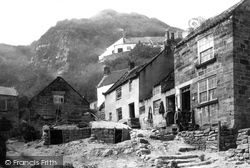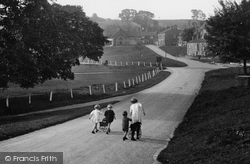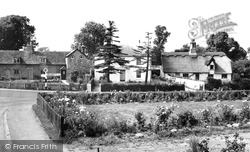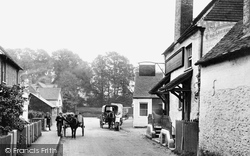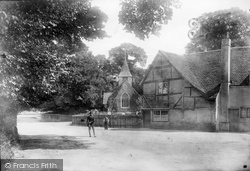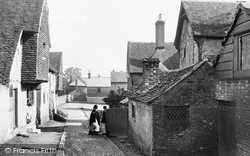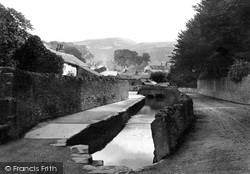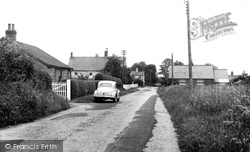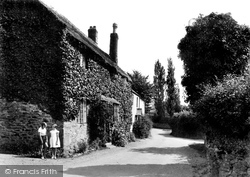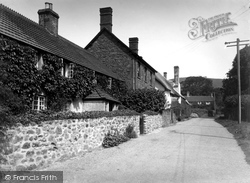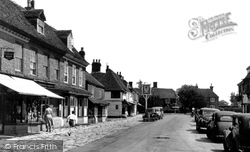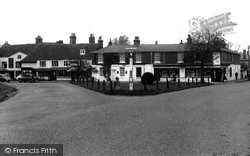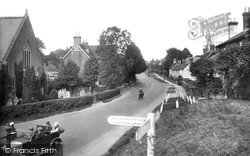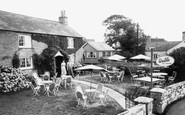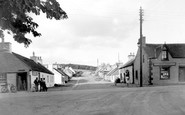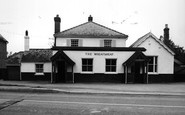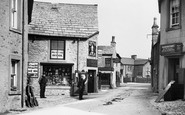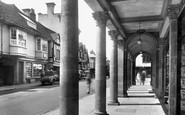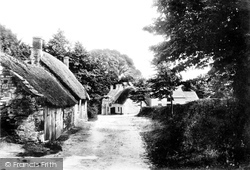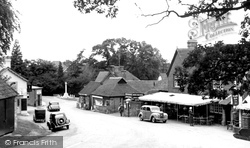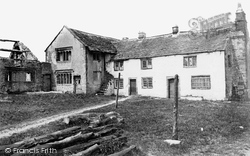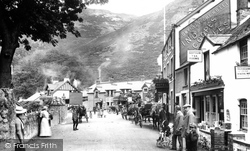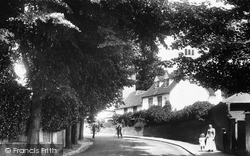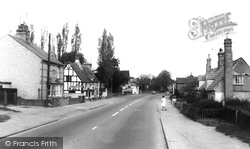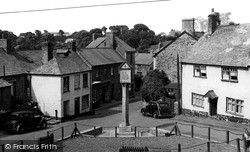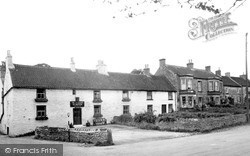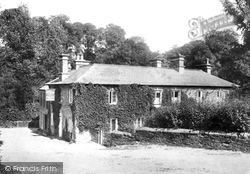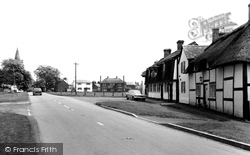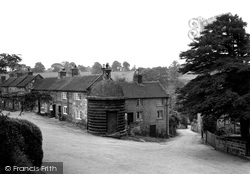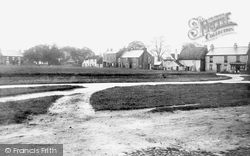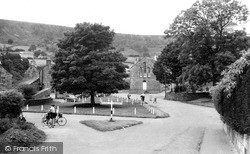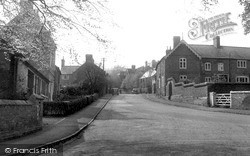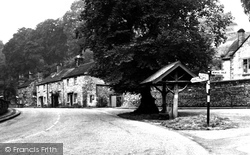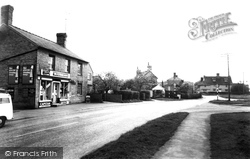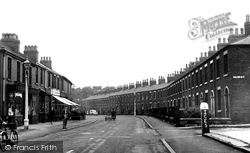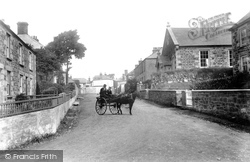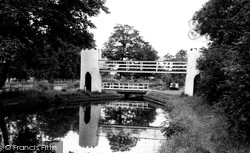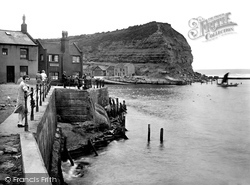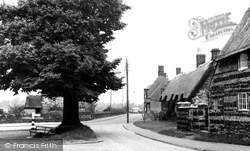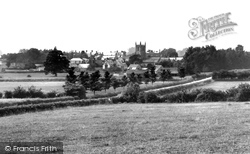Places
5 places found.
Those places high-lighted have photos. All locations may have maps, books and memories.
Photos
9,649 photos found. Showing results 501 to 520.
Maps
18 maps found.
Books
13 books found. Showing results 601 to 13.
Memories
4,612 memories found. Showing results 251 to 260.
Happy Days.......
I along with very many local girls over the years helped out at the Tea Gardens during the school holidays. I remember going to the front door a few times to ask if they had a job for me and being so scared I came away with an ice ...Read more
A memory of Bosherston in 1965 by
Perfect Place
My name was Sandra Goodfellow when I was born at home in Erbistock in 1954. I lived on Twining hill. I had a very happy childhood there with my three siblings, Mum and Dad. I started Erbistock school in 1957. It was a cosy, two ...Read more
A memory of Erbistock by
My Most Memorable Corner
I lived at Corbieton Cottage for 22 years between 1939 & 1961 and this is the view I saw as I came down the hill to go to school, to Sunday school, to Scouts, to the Kirk, to the pub, the Hall, the bowling, the ...Read more
A memory of Haugh of Urr by
I Lived Here
I moved to West End in 1966. My family owned the Wheatsheaf from 1964 until about 1967 and my auntie still lived in West End so I often visit. I was 11 in 1964 and my earliest memory of the village was seeing the ...Read more
A memory of West End in 1966 by
The Printing Works Premises.
The property on the left of the photograph marked 'Printing Office' is where I grew up and lived until my student days. My parents operated a bakers and confectionery business from the premises. In 1890, when a printing ...Read more
A memory of Ingleton by
Boyhood
I was born in 1922 in Mundford where my Father was the village policeman. We had no motor car, indeed in those days there were not many people who could afford this luxury. The village was small, however it was self-contained and provided ...Read more
A memory of Mundford in 1920 by
School Days
I am surprised that no one has added any memories to this page. When I was a child the village was small and everyone knew everyone else, now it has changed out of all recognition, apart perhaps from the very centre ...Read more
A memory of Fair Oak in 1947 by
Birchinlee
I don't have memories of Derwent Reservoir but my Great Grandfather was a Navvy who worked on the building of the Howden and Derwent Reservoirs and Dams. He lived with his family in the purpose built village of Birchinlee in hut ...Read more
A memory of Derwent Reservoir in 1900 by
My Memories Of Resolven.
The personal views of Resolven expressed in these pages reflect my own fond memories of Resolven, the Vale of Neath and its people. In 1953 I returned to the valley as a teenager, little did I know it was to become my home. I ...Read more
A memory of Resolven by
Buy My Lily Of The Valley.
On one day of the year, through the forties and probably the fifties, my grandmother Ethel Glazier, would pick all the lily of the valley she had, in a square bed about three foot square, in her back garden in Rowledge. She ...Read more
A memory of Farnham in 1941 by
Captions
5,016 captions found. Showing results 601 to 624.
He spent his retirement running the village inn with his French wife Clothilde. Both now rest in the churchyard.
He spent his retirement running the village inn with his French wife Clothilde. Both now rest in the churchyard.
Not far away from the village are local quarries where a kind of gravel called Burley Rock was excavated in earlier times.
Here we see the rear of the Old Hall, which stands on the Market Place.
The sightseers on the coach arriving at the hotel reveal that the village was a 'must see' for visitors.
St Peter's Hill climbs out of the village towards Caversham's striking parish church of St Peter, which occupies a pleasant setting above the Thames.
Inns and restaurants such as the Old Plough and the White Horse (left) served the travelling public on the Great North Road until a bypass was built for the A1 to the west of the village.
This photograph shows a quiet corner of the village just beneath the parish church, where the unusual war memorial in the centre stands on an old granite church pillar.
This is a tiny village with a big history. Copper mining in the 18th century brought an influx of workers into this quiet spot just to the east of Scotch Corner on the Roman Watling Street.
The village is tucked away in the Vale of Mawgan, five miles north-east of Newquay. The Falcon Inn stands at the bottom of the lane.
Houses from different eras mix well around the greens. Adjoining the village today, a huge distribution centre is developing on the former air crew training base.
The windowless stone-built village lock-up. A surprising number of these old roundhouse lock-ups survive, many in the villages of neighbouring Derbyshire.
The windowless stone-built village lock-up. A surprising number of these old roundhouse lock-ups survive, many in the villages of neighbouring Derbyshire.
Looking across the green at the airy and spacious village, we see the Old Rectory (left); the tallest of the next three buildings is the old police station and court house, with the White Heifer pub on
Equidistant between Pickering and Castleton is the historic village of Rosedale. The small Cistercian abbey housing 10 nuns was formed in 1158. A tower is the only remaining part of the abbey itself.
Harcourt is taken from Harcourt in Normandy, and from Robert de Harewecurt, who held the village in 1202.
This is one of the six locations in the village where well dressing is carried out. For those interested in this ancient art, the dates coincide with those at Monyash. mentioned elsewhere.
The post office and shop are at the junction with the Haverhill Road and the village green. In the distance is a very fine 17th-century farmhouse with a jettied cross-wing.
This is another view of Stanifield Lane, but further out from the village. The pre-war houses stand neat and square on the lane. Farington is a parish in South Ribble Borough.
There is another explanation of Mullion's name - it was at one time called Porth Mellin, 'the cove of the mill', and a mill existed here until the 19th century.
The canal at Drayton Manor, with its unique Gothic-style footbridge, complete with battlements. Immediately beyond is a swing bridge.
The village takes its name from the staith that has been repaired and reinforced to remain its main defence against the unpredictable North Sea for centuries.
They include the one on the left and the middle thatched dwelling on the right. Ironically the new A43 Northampton road now by-passes the village. The tree has also gone.
The road is Station Road, which today leads to the golf course.
Places (5)
Photos (9649)
Memories (4612)
Books (13)
Maps (18)


